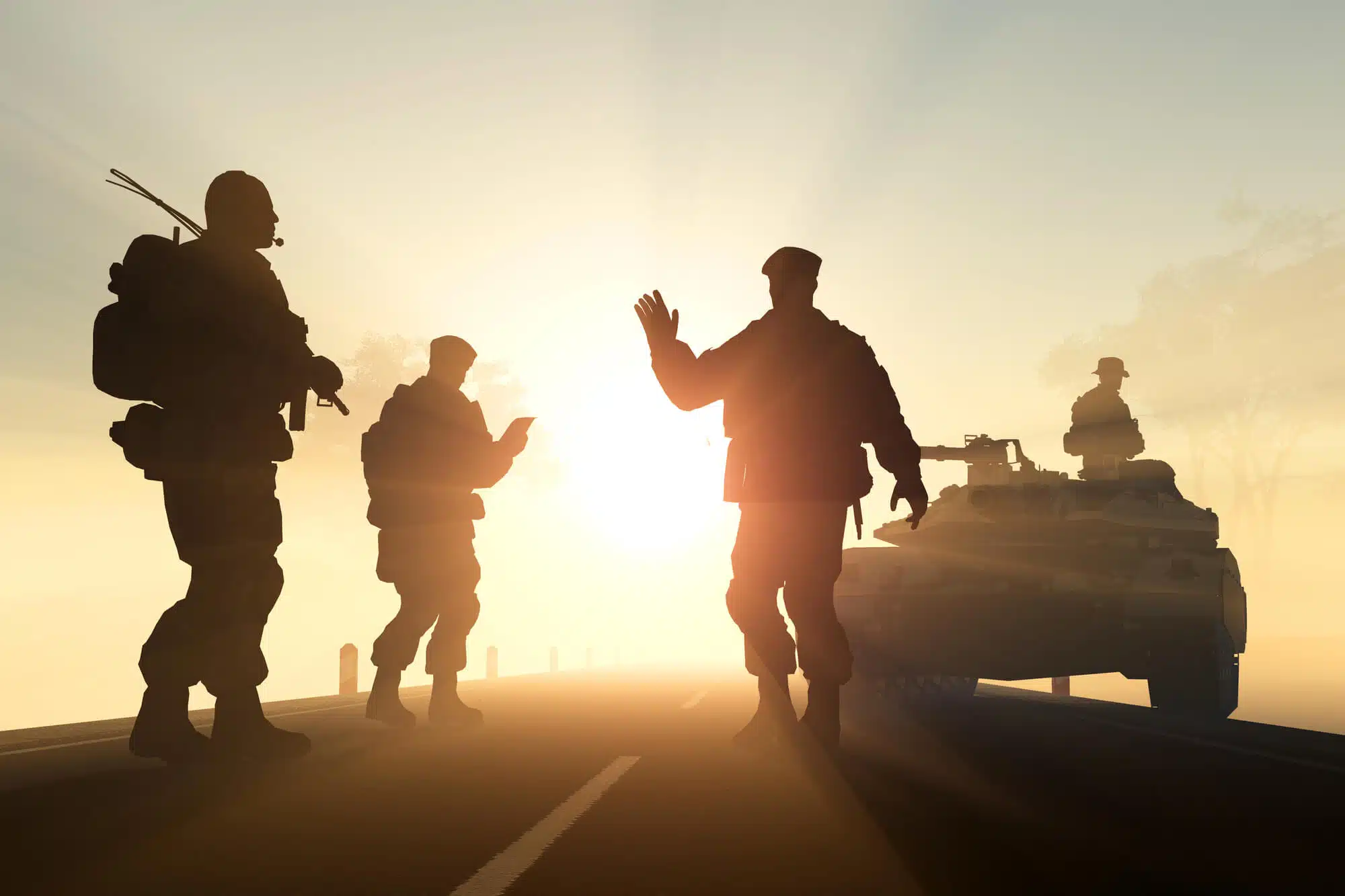In this chapter we will examine whether social morality is a product of religions, or a universal biological trait that preceded cultures and religions? And how humanity can unite in times of emergency
for all episodes of the series
Is social morality a product of religions, or a universal biological trait that preceded cultures and religions? There are at least two worlds of knowledge that contradict the assumption that morality is a product of religion: the paleo-anthropological world, the world of primitive man - and the worlds of those who lack culture and religion, who nevertheless demonstrate perfect social morality.
First, social morality predates institutionalized religions: findings dating back tens of thousands of years among different species of early man testify to a tradition of cooperation: joint hunting, joint cooking and investment in the creation of objects for public use. These findings far preceded any religion, certainly all monotheistic religions, the first of which are only thousands of years old.
Second, the acquisition of any culture - including the acquisition of a religion, with all its laws and customs - depends on basic communication. If morality was an invention of religion, morality could not be expressed in animals and babies, because they do not have linguistic abilities that enable basic communication. But dozens of studies and observations show that both animals and human babies have natural morality: a sense of justice, protection of the weak, fair distribution of resources.
Freud and Piaget assumed that children are born without morals. This assumption was a cornerstone of Western psychology for decades, but Paul Bloom Find evidence for moral behavior among infants. Newborn babies cry in response to another baby's cry. One-year-old babies preferred an adult who helped others over an adult who hindered others. Eight-month-old infants preferred a person who punished another person, when the latter exhibited antisocial behavior. In the experiments, babies approached people who demonstrated moral and social behavior, and recoiled from people who behaved immorally, even when this behavior was demonstrated towards someone else and not towards the babies themselves. Babies who saw a figure trying to help preferred it over a figure trying to fail. One-year-old babies tried to help for people in need. Babies who saw a bruised adult, approached him and tried to comfort him, even if for that they had to give up a toy. Experiments and observations confirm this finding in a cross-cultural way. Even babies who are still years away from acquiring a language through which they can socialize, socialize, and acquire religious faith - they also demonstrate moral behavior and a basic sense of justice.

Moral thinking is evident among four-year-old children. When asked if it was okay to wear pajamas to school they said no. When asked if it was okay to hit a girl, they said no. After that they were told that the teacher allows both things - and then they were asked again if they would do them. They replied that now it's okay to wear pajamas to school - but it's still not okay to hit a girl.
We don't learn how to grow arms. They are part of our biology. In the same way, morality developed in us. Cooperation, moral judgment and a theory of justice exist in our biological infrastructure. A person needed 13 million calories to reach the point from which he satisfies his own needs. There is no equivalent to this in the living world. Only at the age of 20-18 does a person begin to achieve on his own more than he needs. Until then he needed the support of the social institutions. To receive education, health services, experience in dealing with the environment and nature, "it takes the whole village": most of the time the children are under the supervision of education and health systems that go beyond the family. They will not develop without joint action, altruism and goodwill. This is more important for the human species than for many other species, because of the extended childhood of the human infant, because its brain develops over a longer period of time than the brain of any other species. This is another way in which biology determines our social conduct.
Don't the new wars breaking out in the mornings contradict this assumption, that man is good by nature? vice versa. Wars are the exception that proves the rule. Wars are short bursts of violence in an ongoing reality of peace, cooperation and the investment of efforts and capacities in organization and development. In recent centuries, those who wage wars and control the means of warfare are not tribes or gangs as was the case for most of history, but sovereign nation-states with control over far greater resources. And yet, only in two wars in modern history did more than one percent of the entire human race perish - in World War II and the Taiping Rebellion in the 19th century. The rate of losses as suffered by humanity in World War II, 55 million deaths, is covered today by giving birth within four months, thanks to the cooperation in the societies of billions of people. This cooperation enables the protection of the newborns, medical care that will bring them to maturity (treatment based on scientific research which is also a fruit of cooperation), providing them and their parents with a living, and ensuring their safety until maturity. The human race invests infinitely more effort and resources in growth, cooperation and mutual aid than in war. War is a rare phenomenon in international relations, and even when it does break out, over 95% of those involved in it cooperate with each other, not fight each other. in World War II 70 million people fought each other, but in that war, Over two billion people They cooperated on the industrial, agricultural and governmental fronts, in the recruitment of personnel and resources, in education, medicine and construction.

In modern armies, the proportion of combatants among the soldiers is less than twenty percent. For every soldier who holds a weapon at the front, between five and seven are engaged in logistics, intelligence, armaments, medicine, engineering and more - that is, helping their comrades. Even among the fighting minority, one of the strongest motivations to go into battle is not hatred of the enemy. This emotion comes up in propaganda to justify fighting, but many studies have found that the main motive of the soldier at the front is love: love for his country, love for his family in the home, for which he fights, love for his colleagues at the front, for whose sake he is ready to leave the trenches and run naked into the fire.
subtitle:

Scriptures, police, or laws may reinforce our natural tendency to be moral or prevent us from being egotistical and antisocial, but these are only emergency measures and not everyday aids. For most of us, the coercive power of the state - police, courts, prisons - are like a fire extinguisher in an apartment: it's good that it exists, but most of us will never have to use it. Most of us are naturally moral, without thinking about it or falling for it. For most of us, it is not the fear of punishment that prevents us from doing bad things, but rather the discomfort, the nausea, the reluctance that arises in us automatically from the very thought of doing bad things. We are moral by nature, regardless of religion or belief. In our biological infrastructure we have social morality, and religions are just another way to express this natural tendency. Religions would not have been so successful - humanity would not have embraced them so overwhelmingly - if they had not reflected biological traits that naturally exist in us anyway: empathy, altruism, the urge to cooperate, a strong desire to do good, to help. Religion took a ride on our natural tendency for cooperation and mutual aid, and presented natural morality as its invention. This copyright infringement is perhaps the most successful ride that human civilizations have ever taken on nature's back.
There is further evidence, albeit circumstantial, of morality being a biological, natural trait: if morality was only a product of education, each society would shape its own morality, and different societies, unrelated to each other, would have different types of morality. But that is not the case. All human societies, even those that differ significantly from one another, even those that are not aware of each other's existence, are based on surprisingly similar moral foundations: a morality of cooperation, not of individual selfishness and isolation. Natural morality is common to all of us. He is the one who pushed all human societies to develop religions. The moral codes dictated by most of the world's religions are remarkably similar: towards the members of the group - charity and help to the weak, and aversion to selfishness and harming others. Towards those outside the group - condescension, isolation and strict acceptance tests.
In recent centuries, violence has been on the decline. In the last decades, entire regions of the world have excluded war as a tool for conflict resolution. A hundred years ago, a person who would leave Jerusalem for Jaffa, a distance of sixty kilometers, was at a greater risk of being kidnapped into slavery or for ransom, raped, murdered or robbed, than a person today who sets out on a journey of thousands of kilometers around the world. The nation state took the monopoly on violence from tribes and kingdoms and thus reduced the display of random violence. A healthy person in Western countries usually reaches old age and returns without a threat to his life and without seeing a single body on the way.
In all the terrorist attacks of the last century, including the September 11 attacks, less than a tenth of the number of victims of a small war such as the Russia-Chechnya war were killed. In a world of billions of people, there is zero chance that any terrorist event will be related to us. And yet, against terrorism we adopt disproportionate security measures: carrying weapons, security guards at every corner, identification based on appearance ("profiling"), financing and training police forces and fighting on an unprecedented scale. We use a cannon to squash a fly.
If things are so good, why do we think we're in such bad shape? Why do we believe that constant warfare is a basic human drive? About that - in the next article.
Additional sources:
John Ellis, Warriors (Systems, 1982).
David Brooks, The social animal (Dvir, 2014), pp. 291-289.
France de Val, inherently good (Kinneret, 1998), p. 110.
Marvin Harris, our kind (Maariv, 1991), p. 206.
Paul Bloom, Against Empathy (Ecco, 2016), pp. 170-171.
Noam Chomsky, in Marc Hauser, Moral Minds (Ecco Press, 2006), foreword.
Niall Ferguson, The War of the World (Penguin, 2006), foreword & ch. 1.
Eric Lambin, An Ecology of Happiness (Univ. of Chicago Press, 2012), p. 95.
Ara Norenzayan, Big Gods (Princeton, 2013), p. 145.
Steven Pinker, The Better Angels of Our Nature (Penguin, 2011).
Steven Pinker, "The Moral Instinct", NYT, 13.1.08.

One response
What the writer defines as "social morality" is a system of reactions and counter-reactions or what is defined as instincts that have developed over millions of years
To give the species the chances of survival,
Since and because of environmental conditions, larger groups of people have come together to live together
That nature "planned", the instincts that developed for life in a family
or in small groups were not suitable for these large groups,
At the same time, this was already a technological development that "achieved" development
the instincts,
Two situations that necessitated the development of laws and regulations in the first stage
Enforced by the invention / development of religions
But it turns out that in quite a few cases religions are a pretext for wars
In which other people are destroyed and this is a situation that proves that the population explosion
of the human race is a risk to the survival of the species...